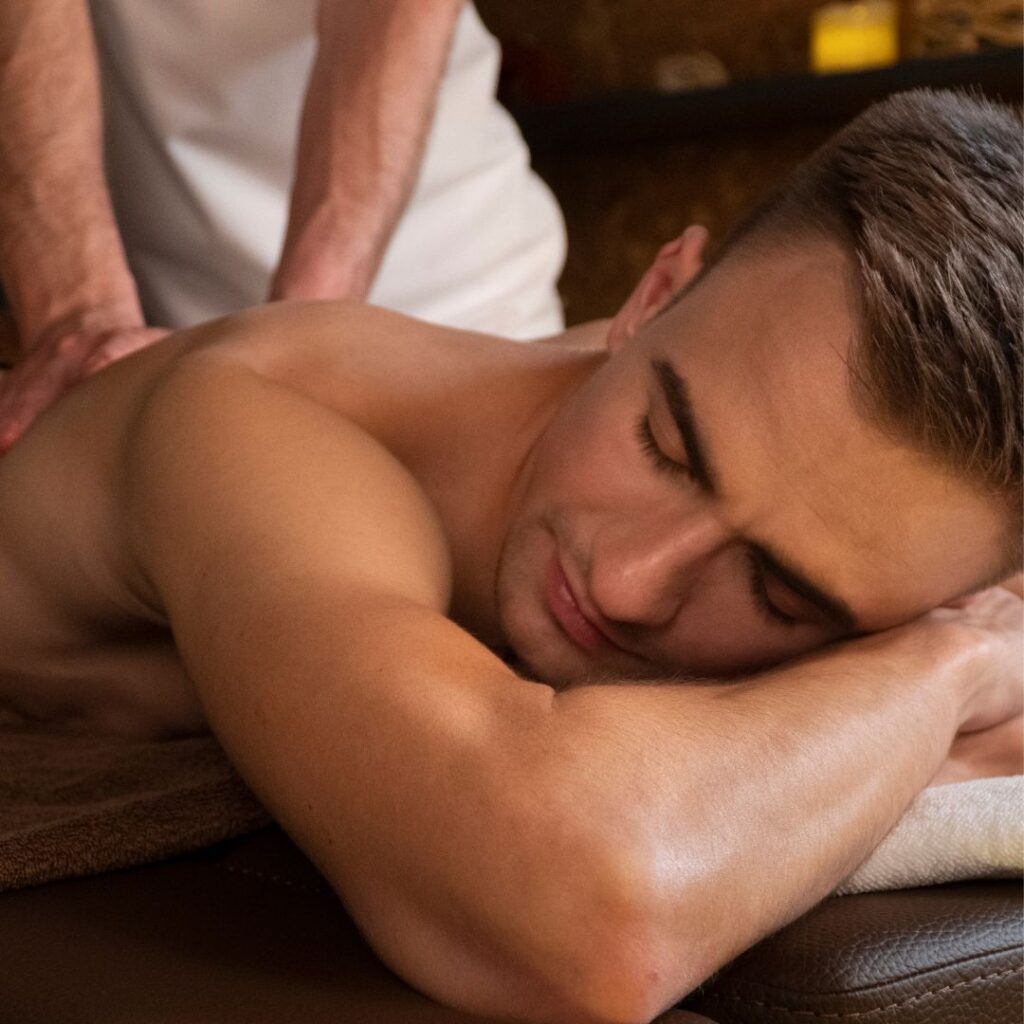Thai massage, also known as Nuad Thai, is widely recognized for its therapeutic benefits, particularly for athletes. As an ancient healing art, it blends acupressure, assisted stretching, and deep tissue techniques to promote healing and relaxation. For athletes who experience muscle fatigue, soreness, or tension from their intense training regimens, Thai massage offers a natural remedy that not only enhances physical recovery but also supports mental well-being. In this article, we explore the unique benefits and techniques of Thai massage, specifically tailored for athletes.
Benefits of Thai Massage for Athletes
Thai massage provides numerous advantages for athletes, making it an essential part of their wellness routine. One of the primary benefits is its ability to improve flexibility. The assisted stretches incorporated into Thai massage help to lengthen muscles and joints, improving overall flexibility and range of motion. This is particularly useful for athletes who require high mobility in their respective sports, such as dancers, martial artists, and runners. Additionally, the process can be deeply rewarding, helping athletes feel rejuvenated, balanced, and better prepared for peak performance.
Another key benefit is enhanced circulation. The pressure applied during Thai massage promotes better blood flow, which facilitates the removal of toxins and improves oxygen delivery to tissues. This helps reduce muscle soreness and speeds up the recovery process after intense physical activity. When blood circulation is improved, it not only aids in muscle repair but also promotes better joint health and helps prevent future injuries.
Additionally, Thai massage helps reduce muscle stiffness and tension. The combination of deep tissue techniques and acupressure points targets specific areas of the body that may become tight or strained due to overuse. This tension relief not only helps prevent injury but also improves performance by allowing muscles to function at their full capacity. Athletes often experience delayed onset muscle soreness (DOMS) after heavy training, and Thai massage can be particularly effective in reducing this discomfort, allowing them to return to training more quickly.
Thai massage also promotes mental wellness, which is often overlooked in athletic recovery. The deep relaxation induced by the massage helps reduce stress levels, improve mood, and enhance mental clarity. These psychological benefits can aid in emotional recovery after intense competitions or long training sessions, ensuring athletes stay mentally sharp and motivated for their next performance.

Techniques Used in Thai Massage for Athletes
The techniques utilized in Thai massage are specifically designed to release muscular tension and promote healing. The therapist uses their hands, elbows, forearms, knees, and feet to apply pressure to key points along the body’s meridians. One of the main techniques used is “passive stretching,” where the therapist gently guides the client’s limbs through stretches that help improve muscle length and flexibility. These stretches are typically deeper than those performed during typical self-stretching, as they involve passive assistance from the therapist.
Another important technique is acupressure, which involves applying pressure to specific points on the body to relieve pain and enhance energy flow. By stimulating these points, Thai massage can alleviate tension, enhance blood circulation, and promote a deeper sense of relaxation. Acupressure is particularly effective for athletes as it targets pressure points that help alleviate tight muscles and soreness. When performed by a professional therapist, the technique becomes even more effective, ensuring precision and safety in addressing specific physical concerns.
Thai massage also involves rhythmic movements that incorporate stretching and compression. These movements work to release tension from the muscles and fascia, increasing joint mobility and overall flexibility. The repetitive motions used throughout the session help improve both flexibility and muscle tone, which are essential for athletes looking to maintain peak physical performance. The manipulation of the soft tissues through rhythmic compression also helps reduce the buildup of lactic acid, a common cause of muscle soreness after intense exercise.

Final Thoughts
For athletes, Thai massage offers a unique and effective way to enhance physical performance, reduce recovery time, and prevent injuries. The combination of flexibility, deep tissue massage, acupressure, and assisted stretches makes it an essential tool in an athlete’s wellness regimen. Whether used for injury prevention, recovery after a strenuous workout, or simply for relaxation, Thai massage is a holistic practice that benefits both the body and mind. If you’re an athlete looking to maximize your performance and maintain your health, consider incorporating Thai massage into your training routine for lasting results.
The benefits of Thai massage extend beyond immediate physical recovery. By helping to restore balance to the body, it can also assist in improving long-term performance and injury resilience. Regular Thai massage sessions help athletes maintain their peak performance levels by reducing the risk of injury, enhancing flexibility, and promoting muscle health. It’s an investment not only in physical recovery but also in mental clarity, making it a powerful tool in an athlete’s overall wellness strategy.

